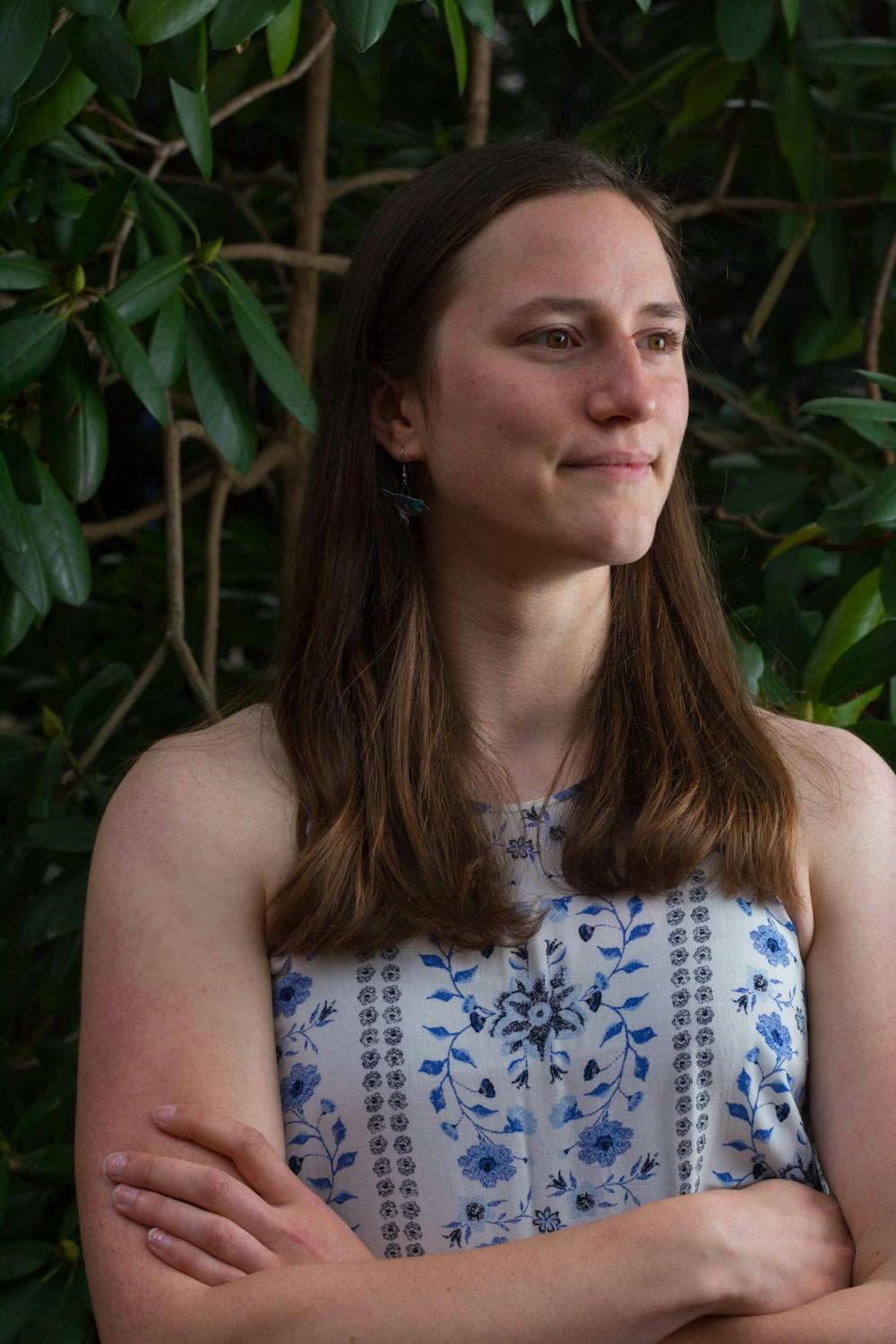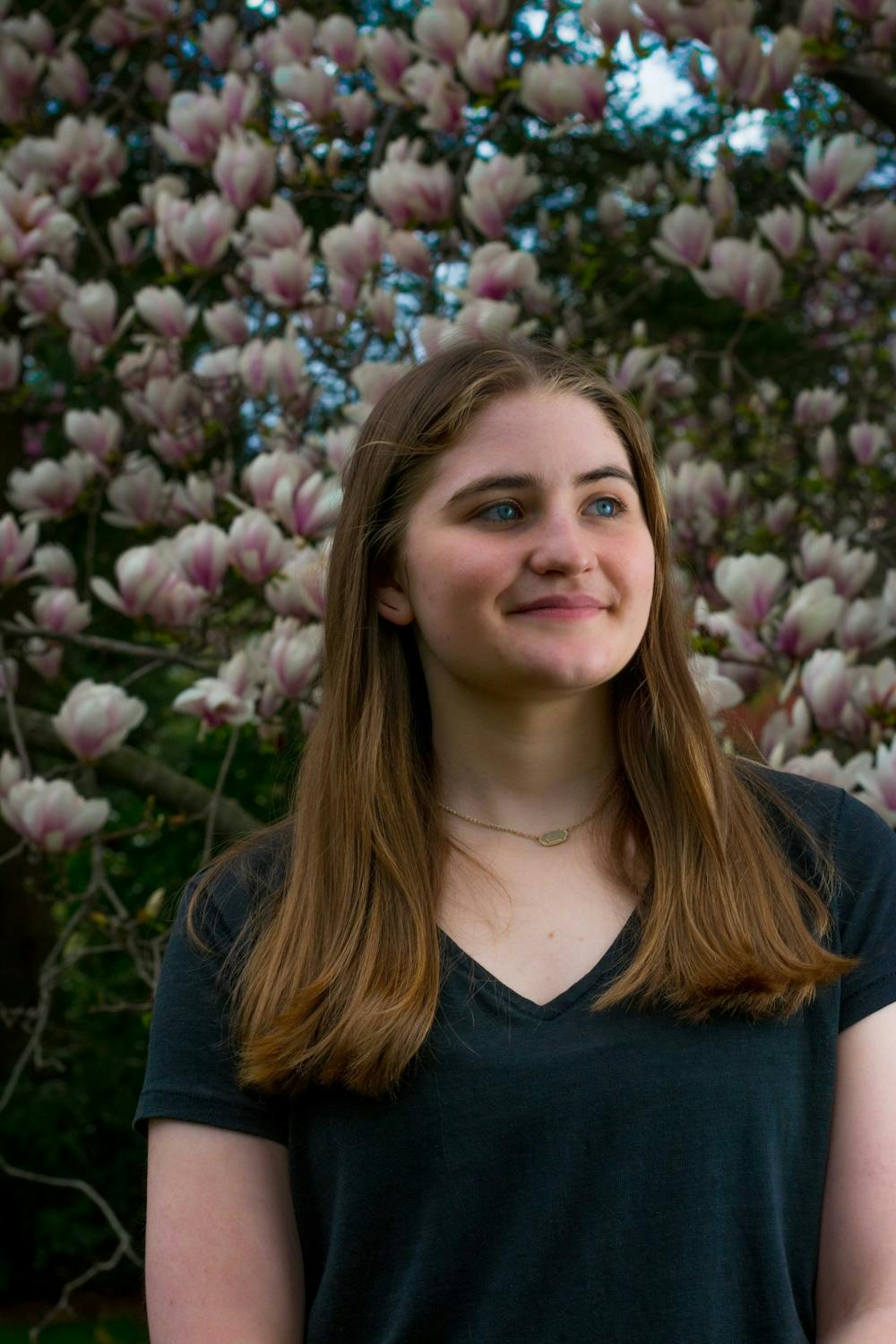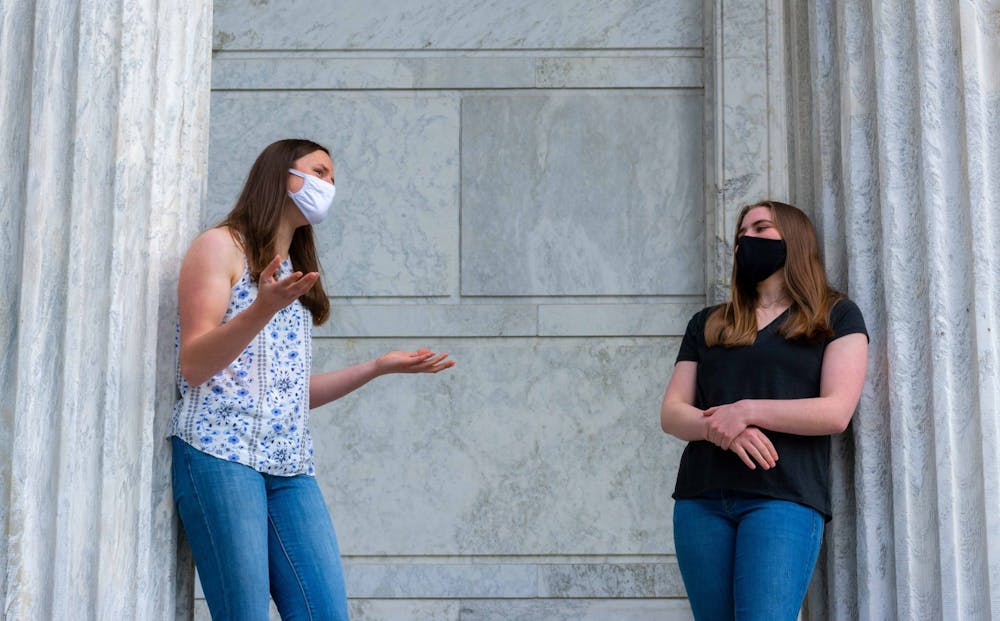Two juniors at the University were awarded the Truman Scholarship, a highly competitive merit-based award for undergraduates interested in pursuing a career in public service that grants $30,000 towards graduate studies.
Claire Wayner ’22 and Jessica Lambert ’22 joined 60 other college students across the United States as the 2021 Truman Scholars, according to a press release from the Harry S. Truman Scholarship Foundation on April 14. Princeton was one of ten institutions to be represented multiple times among the list of scholars.
Both Wayner and Lambert were awarded the 2020 Udall Scholarship last May, for which each received $7,000 for their “leadership, public service, and commitment to issues related to the environment and Native American nations.” Wayner was granted Udall’s Environmental scholarship, and Lambert received the Tribal Public Policy scholarship.
In addition to the monetary award, Truman Scholars receive priority admission and supplemental financial aid at certain prestigious graduate programs, career counseling, internship opportunities within the federal government, and cohort leadership training.
The Truman Scholarship was founded by Congress in 1975. Past recipients include household names like Fair Fight founder Stacey Abrams, White House Domestic Policy Advisor Susan Rice, and Supreme Court Justice Neil Gorsuch.
The foundation is currently chaired by Madeleine K. Albright, the former U.S. Secretary of State, and it states in its mission that “a better future relies on attracting to public service the commitment and sound judgment of bright, outstanding Americans.”

Claire Wayner
Julian Gottfried / The Daily Princetonian
Hailing from Baltimore, Md., Wayner studies environmental engineering and sustainable energy at the University. To Wayner, climate change is the defining crisis of our time.

She has led a number of initiatives on Princeton’s campus to increase sustainability, including leading the Princeton Student Climate Initiative, serving as the Undergraduate Student Government’s inaugural Sustainability Chair, and working for the Office of Sustainability as a peer representative.
“I want to build a career dedicated to using policy and public service to achieve deep decarbonization on a national and global scale, particularly within the electricity sector,” she wrote in a statement to The Daily Princetonian.
Most immediately, she’s excited about the summer leadership training offered by the Truman Scholarship, and about the opportunity to intern with a U.S. federal agency next summer. Long-term, she intends to pursue graduate studies in energy policy, and then work in government.
Wayner said in her statement that she first became engaged in climate and energy issues through her love of bird-watching and spending time outdoors.

“The beauty I continue to find in natural spaces is what motivates me to keep fighting for a clean, just, and equitable energy sector,” she wrote.

Jessica Lambert ’22 reflects on her time at Princeton.
Julian Gottfried / The Daily Princetonian
Lambert, from Chapel Hill, N.C., is an anthropology concentrator who is also studying Indigenous studies and environmental science. As an enrolled citizen of the Choctaw Nation and a registered first-generation descendant of the Eastern Band of Cherokee Indians, Lambert told the ‘Prince’ she is “driven by the widespread instances of environmental racism in this country.”
“Native, Black, and other marginalized communities’ homes are consistently used as disposal sites for environmental contamination,” Lambert wrote in an email. “For Tribal communities, contamination of our lands undermines our sovereignty and cultural survival, the promises of which can be achieved only with healthy environments in which our people can thrive.”
Lambert said she hopes, in the long run, to use the Truman Scholarship to “work with tribal nations to create tribal environmental protection agencies, remediate sites of contamination, and pass tribal environmental laws.” In doing so, she wants to “work collaboratively with tribal leaders and Natives living at these sites.”
In the meantime, Lambert added, she feels excited by the prospect of joining the Truman community.
“Even in just the few days since I was named a Truman Scholar,” she wrote, “I’ve gotten so much support and willingness to help from other Truman Scholars.”
Both Wayner and Lambert said the Truman application process was long and intensive, and both thanked Steve Gump of the fellowship advising office for his assistance and support. Wayner particularly expressed gratitude to Professor Stanley Katz, of the School of Public and International Affairs, for his guidance on the policy proposal part of her application, and Lambert thanked Professor Ryo Morimoto, of the anthropology department, for his mentorship and advice.
Editor's Note: A previous version of this article incorrectly stated that Wayner's internship will be this summer. The internship will take place next summer.








